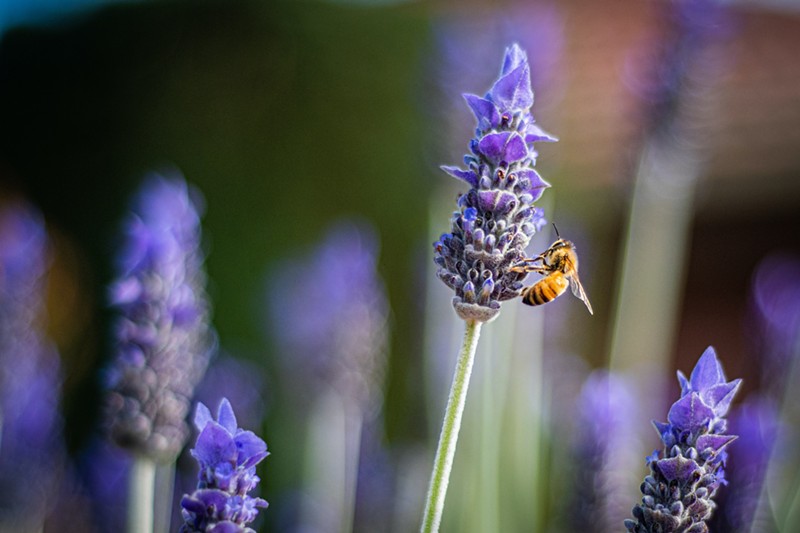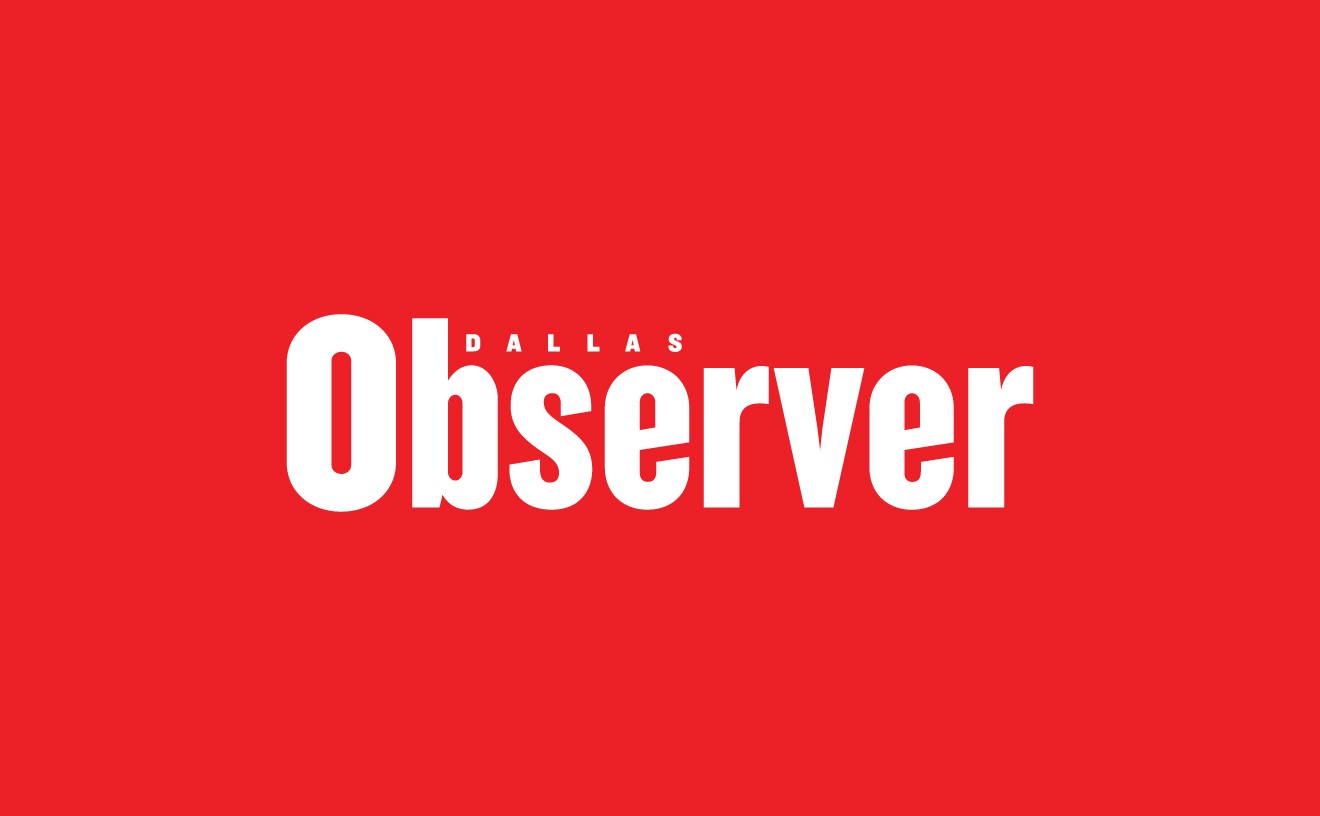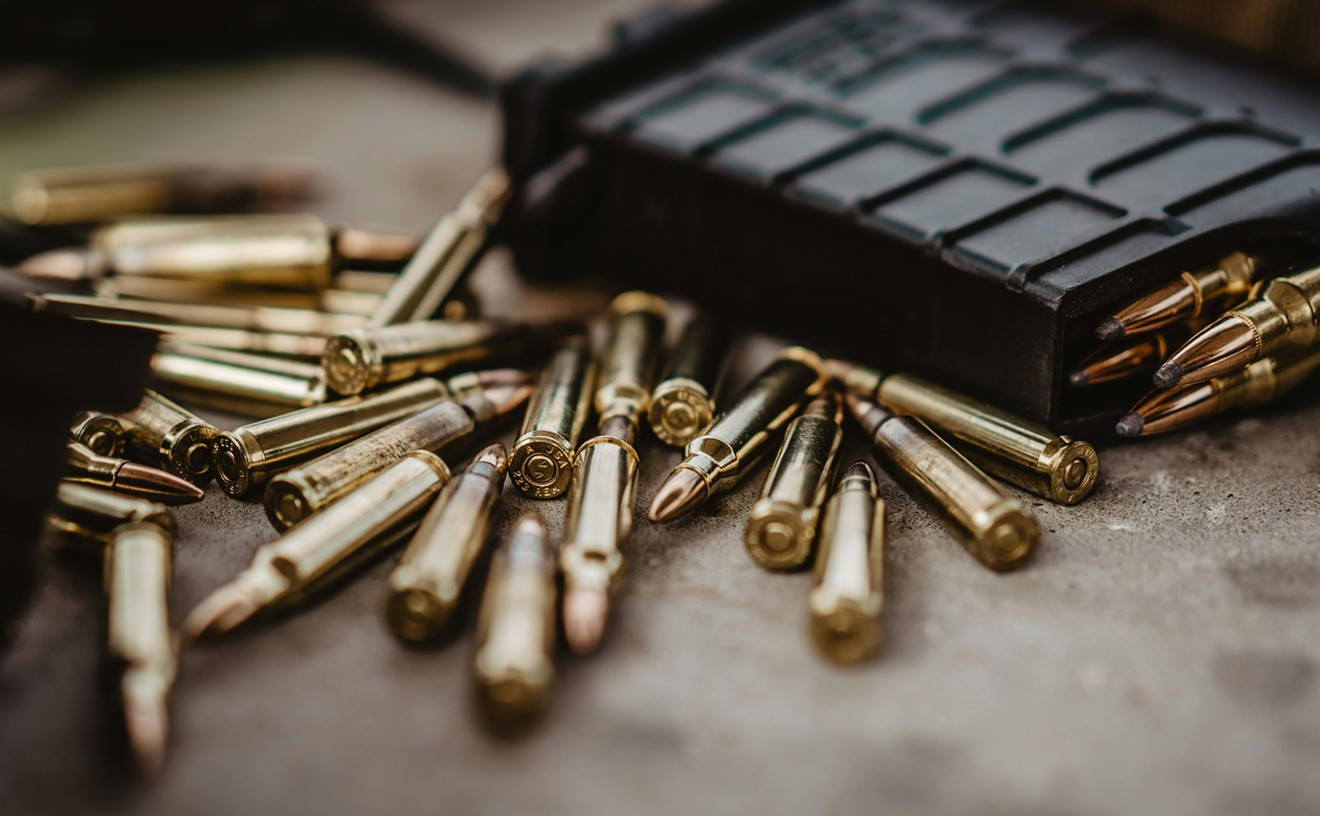Luckily, one Texas lawmaker was looking out for the bees when she filed a bill earlier this month.
State Sen. Judith Zaffirini authored Senate Bill 2427 with the goal of safeguarding the state’s native plants, wildlife and bee populations. Texas has seen a decline in healthy bee habitats, and Zaffirini said her bill aims to help foster areas where the winged creatures can thrive.
It’s not just a problem that’s unique to the Lone Star State. Native bees and honeybees across the country are perishing at “unprecedented and unsustainable rates," she said.
“That is why I’m committed to doing more to protect nature’s best pollinators, including the more than 800 native bee species in Texas,” Zaffirini wrote to the Observer.
The Laredo Democrat also pointed to a quote from famed anthropologist Margaret Mead: “We won't have a society if we destroy the environment.” Zaffirini was inspired to file the bee-friendly bill after gaining insight into the insects’ significance, noting that nearly 25% of such native species are up against a rising threat of extinction.
Zaffirini’s bill would amend the state's tax code, making it easier for land used for beekeeping and wildlife management to qualify for property tax breaks already provided for agricultural land.
Thanks to the mighty honeybee, she continued, some $15 billion worth of the nation’s crops are pollinated each year.
The Texas Beekeepers Association’s website praised Zaffirini’s bill for helping to slash the time required to qualify land for beekeeping.
"If you're putting native plants back in your area, the nice thing is they kind of take care of themselves." – Shubber Ali, Garden for Wildlife CEO
tweet this
Other Texas-based advocates are working hard to save the bees. The wildly popular TikTok-er Erika Thompson, for instance, has buzzed around the talk-show circuit — even appearing on The Ellen DeGeneres Show and Joe Rogan Experience podcast — to spread her message.
In one video posted to TikTok, she pointed out just how essential bees are to humans.
“If you've eaten an apple or an almond today, had a cup of coffee or consumed meat that grazed on alfalfa, you have bees to thank for that,” she said in part. “We depend on bees for one out of every three bites of food we eat, and bees depend on us, too.”
Bees need humans to take care of the planet to allow for a range of flowers from which to forage, Thompson continued. So, what’s a bee-concerned person to do? Plant bushes, trees and flowers that will offer up bee food.@texasbeeworks Thank you, bees! #honeybees #beekeeping #savingthebees ♬ original sound - Erika Thompson
Native plants, Thompson continued in the video, are the best for this goal.
Shubber Ali is the CEO of Garden for Wildlife by National Wildlife Federation. He told the Observer about the importance of native plants, explaining that while flora found at big box stores may be pretty, they're also “commercially grown plants that are primarily species from other parts of the world.”
Ali said that Garden for Wildlife has built a network of growers in multiple states nationwide who focus on nurturing plants indigenous to each area. Gardeners can visit his organization’s website and input their home’s ZIP code to learn which native plants will grow best in their yard and place an order for the plants.
Native plants are integral to sustaining a vibrant caterpillar population, which in turn becomes food for young songbirds, Ali said. But when native plants are cut back and replaced with sterile lawns, it works to destroy food sources for bees, butterflies and moths — meaning that baby birds may also go hungry.
Insects are creepy to some, he added, but they’re also vital to human survival.
“The environment and ecosystems have evolved over millions of years, and it's a very well-balanced machine,” Ali said. “It can tolerate a lot of abuse, but you can't abuse it forever.”
Clearly, it would be unreasonable to get rid of cities and live in tents for nature's sake, but we can at least try to make some room for pollinators in our lands, he continued. Some big companies are even beginning to realize that capitalism and protecting the environment aren’t mutually exclusive.
Ali recommends that interested gardeners pick a corner of a yard to begin introducing native plants. It can be overwhelming to attempt to transform the entire landscape at once, but keep in mind that native plants are often cheaper and come back bigger each year.
Also, be sure to avoid using chemical sprays that may harm the insect populations that land on your plants, he said.
“The thing about native plants is, there was nobody gardening them 1,000 years ago; they just grew. So if you're putting native plants back in your area, the nice thing is they kind of take care of themselves,” he said. “They are already designed for the water quality there, the soil quality, the lighting. They're going to thrive just by the nature of what they are.”












